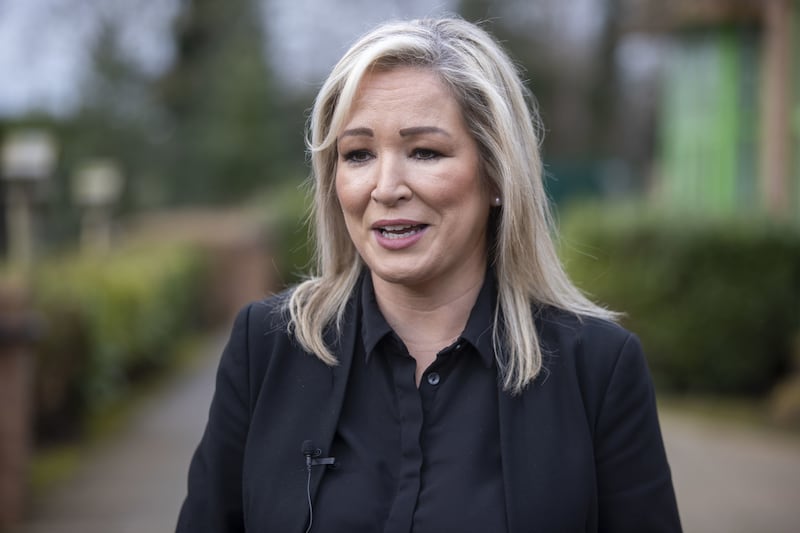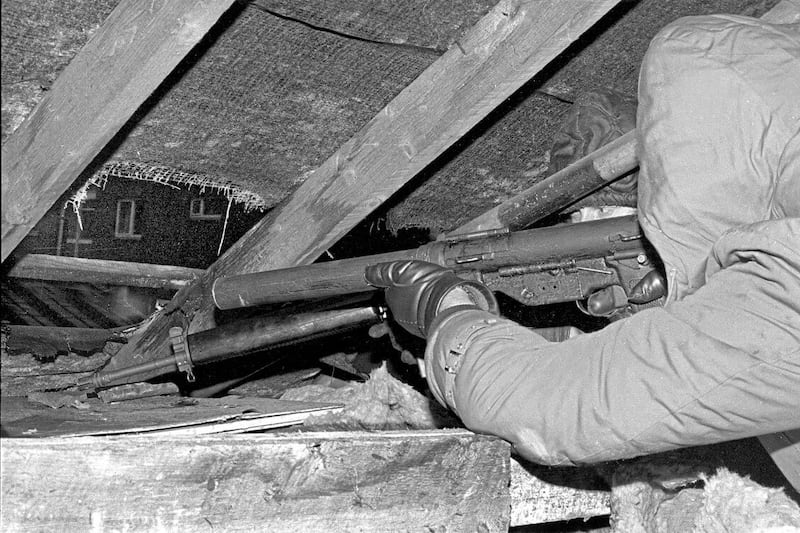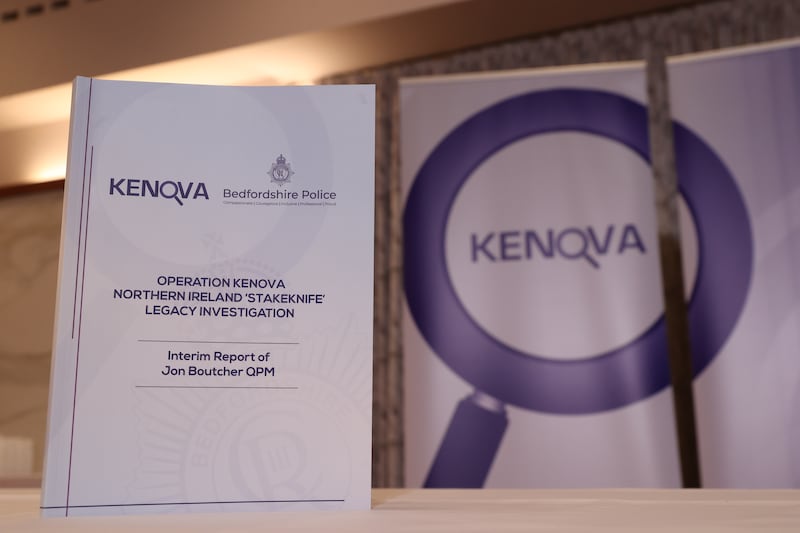A major investigation into a notorious British spy inside the republican movement has uncovered evidence of criminal wrongdoing by both IRA and security force members, it has emerged.
Bedfordshire Chief Constable Jon Boutcher intends to submit the material for decisions on potential prosecutions surrounding the activities of the agent codenamed Stakeknife.
The updated position was disclosed to the High Court as part of a civil action being taken against Freddie Scappaticci, the west Belfast man who denies being the spy linked to dozens of murders.
Margaret Keeley is suing Scappaticci, the Ministry of Defence and the PSNI.
She alleges she was wrongfully arrested and held at Castlereagh police station in 1994 following an IRA attempt to murder a senior detective in east Belfast.
Mrs Keeley was released without charge, but claims she was then taken to a flat in the New Lodge area of the city and questioned by an IRA team.
Scappaticci was one of the men who carried out two debriefing sessions, the Newry woman has alleged.
Her case is among 20 lawsuits against the 72-year-old over alleged kidnappings and interrogations.
Scappaticci left Northern Ireland in 2003 after he was widely named as Stakeknife.
Before quitting his home he vehemently denied being the spy while in charge of the IRA's internal security team, the so-called 'nutting squad'.
Mr Boutcher is heading up Operation Kenova, the name given to the probe into Stakeknife.
An investigative team of more than 60 police and civilian personnel has secured 1,000 statements and obtained 12,000 documents and exhibits comprising more than one million pages.
According to the latest position statement provided for the ongoing civil action, detectives have conducted hundreds of non-evidential interviews and meetings, more than a hundred evidential interviews and dozens of interviews under caution.
It added: "Most importantly, Operation Kenova has uncovered evidence of criminal wrongdoing on the part of individuals within both the Provisional IRA and the security forces, and this material will be submitted to the DPPNI (Director of Public Prosescutions in Northern Ireland) for decisions as to potential prosecutions."
The update was provided as counsel for the police sought to have all working papers produced by the investigation "ring fenced" from disclosure in Mrs Keeley's lawsuit.
Nicolas Hanna QC suggested an alternative, fall-back option of putting a stay on discovery of the material.
A judge was told investigation files are expected to be submitted by the end of the year.
Adjourning the case for a week, Mr Justice Horner said: "There needs to be progress in this action."
Outside court a solicitor who represents Mrs Keeley and others suing over alleged collusion in IRA murders of suspected informers stressed the significance of the new update.
Kevin Winters of KRW Law claimed: "This is massive news for the bereaved families and many others taking legal action.
"It amounts to confirmation that the state had some form of involvement in the taking of life.
"What that role was is obviously unclear at this stage, but it is equally significant that material will be submitted to the PPS for its consideration."
Mr Winters added: "It really lifts expectations that for the first time ever we might actually see ex-security force personnel prosecuted for their role in handling agents and informants during the conflict."








